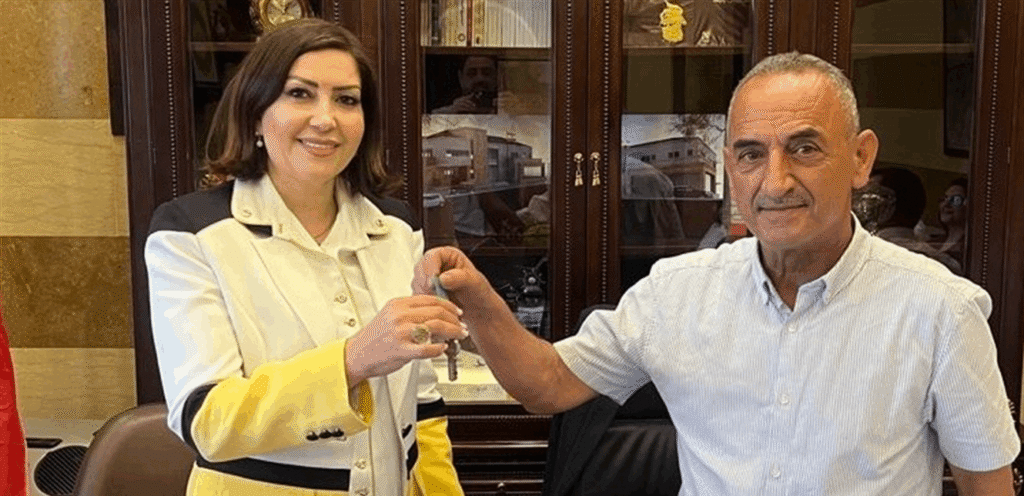In light of the political assessments that the Iranian-led resistance axis received a painful blow following the fall of the regime of former Syrian President Bashar al-Assad, and the ability of developments in the Middle East to reformulate a regional order and shape the balance of power, the official Iranian positions are different regarding the repercussions of the new situation in Syria.
Although the current Iranian government’s decision was surprising in not taking military action to protect its ally before he left Damascus for Russia, those who follow Iranian affairs will find in the statements of Supreme Leader Ali Khamenei adequate answers to questions about Tehran’s position regarding the new rule in Damascus.
Advisor’s statements
The Iranian Supreme Leader had previously sent his advisor for political affairs, Ali Larijani, a private message to Bashar al-Assad before his overthrow, in which he pointed the finger directly at Washington and Tel Aviv for planning what happened in Syria. He also accused a neighboring country of Syria that he did not name of playing a clear role in overthrowing the Assad regime. .
In his last statement at the beginning of the new year, Khamenei considered that Syria was being occupied by the United States, Israel, and regional countries, and threatened “those who attacked Syria” that they would “one day be forced to retreat before the power of its youth.” At the same time, he warned regional countries – without naming them – From “A fate like the fate of Syria.”
During the commemoration of the assassination of the former commander of the Quds Force, General Qassem Soleimani, Khamenei added, “If some countries make a mistake and remove factors of stability and strength, such as the faithful youth, from the arena, their fate will be like Syria, whose land is being manipulated by the Zionist entity and America,” noting that steadfastness and national pride have reasons. There are pillars that must be adhered to and preserved.
Lined messages
Political researcher Ali Reza Taqavinia points out the escalation of Western pressure on the Iraqi authorities to “dissolve the Popular Mobilization Forces organization and neutralize it from the axis of resistance and the confrontation front with the Israeli occupation,” explaining that the Iranian leader’s words “were directed at the Western neighbor.”
Speaking to Al Jazeera Net, Taqavi Nia believes that the context of Khamenei’s statements recalls the events of 2014 and ISIS’s control over vast areas of Iraq, before the Popular Mobilization Forces were able to liberate them, stressing that “the Iranian guide makes these events a living reality before the eyes of Iraqi leaders, and warns them.” “The consequences of excluding the National Popular Mobilization Forces.”
He continued that after accepting the truce in Lebanon and overthrowing the Bashar al-Assad regime, “which represented a link in the resistance axis extending from Tehran, Baghdad, then Damascus, all the way to the southern suburbs of Beirut, some estimates indicate that the Zionist-American axis and its allied countries are thinking about repeating the scenario in Iraq after disarmament.” The Popular Mobilization Forces, because they see its strength as an impenetrable barrier to their plans,” he said.
Pointing out that Khamenei’s warnings did not come out of nowhere, the Iranian researcher recalls the statements of the Supreme Leader after the overthrow of Bashar al-Assad’s regime, in which he said that he “possessed undoubted evidence that what happened in Syria was planned in an American and Israeli operations room,” and Taqvi believes We believe that the Iranian warning indicates that it senses a danger that may reflect negatively on the security of its borders.
In this context, Sheikh Ahmed Salek, a member of the Combatant Clergy Council, reveals that the former Syrian regime expelled about 30,000 of the Popular Mobilization Forces who joined the regular army during the war with the armed groups, stressing – in press statements – that “after the exclusion of the faithful Syrian youth… If it is disarmed, it is natural for the secular army to be unable to resist foreign encroachments.”
Defeat the occupation
For his part, the former Iranian ambassador to Lebanon and Jordan, Ahmed Dastmaljian, reads the Supreme Leader’s positions regarding developments in the region in the context of “exposing the plans of the enemies of the Islamic nation and ensuring the elements of its strength,” explaining that Khamenei’s warning is not limited to Iraq, but extends beyond it to Lebanon and other countries falling under the mantle of the axis of resistance. “Because these days she is under great pressure to put down her weapons.”
Speaking to Al Jazeera Net, Dastmaljian recalls previous statements by Iranian Foreign Minister Abbas Araghchi in which he said, “Those who believe in achieving victories in Syria should be patient in ruling, as there are many future developments.”
He adds, “In light of the occupation of parts of Syrian territory after the overthrow of the previous regime, and the continuing Israeli bombing of infrastructure and strategic armament areas, the formation of a national resistance will become a must, because wherever there is occupation, there will be resistance to confront it.”
He believed that his country’s diplomacy was “a forerunner in emphasizing the guarantee of Syria’s unity, national sovereignty, and territorial integrity.” It also warned against foreign interference and demanded that the fate of the Levant be in the hands of its people. He expressed his regret at what he described as “the entry of regional and international parties on the line of dividing the Syrian cake.” Accounting for the interest of its people.”
The former Iranian diplomat concluded that the new rulers in Damascus will find themselves faced with the demands of the Syrian people for the necessity of moving to liberate their lands and preserve their national wealth, explaining that the popular demands to prevent foreign parties from turning the Levant into an arena for settling scores between them will raise big question marks about the ability of the new ruling regime to Defending Syria’s independence. (Al Jazeera Net)









